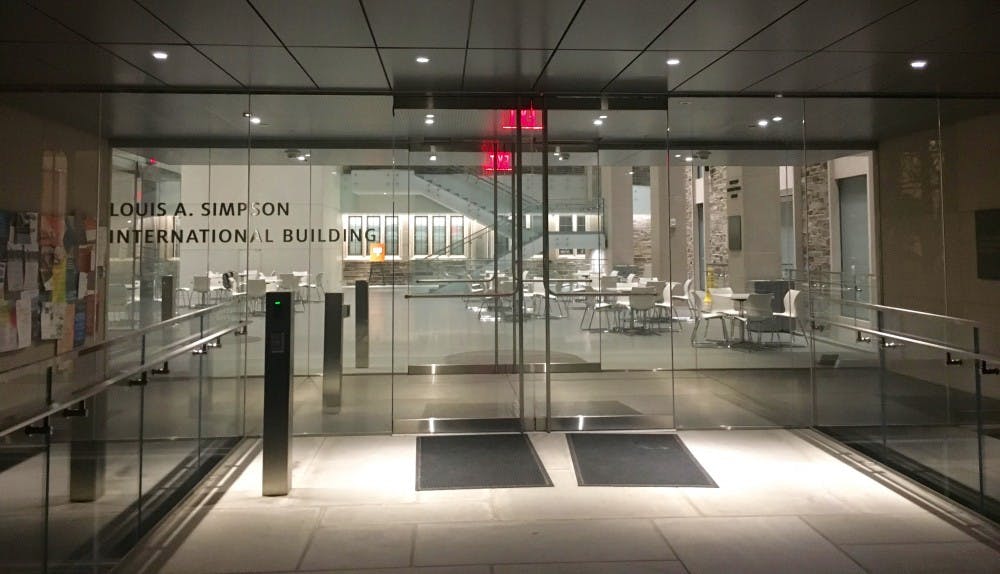First-year international students “will not be able to enter the United States” if enrolled in entirely virtual course loads.
In a statement released on July 24, the U.S. Immigration and Customs Enforcement (ICE) stated that nonimmigrant students “in new or initial status after March 9, 2020, will not be able to enter the United States to enroll in a U.S. school as a nonimmigrant student for the fall term to pursue a full course of study that is 100 percent online.”
The announcement comes ten days after ICE rescinded its earlier policy of a similar nature, following a lawsuit from Harvard University and the Massachusetts Institute of Technology. At this time, the government agreed to return to previous COVID-19 guidance that allows students taking online courses to reside in the United States on F-1 visas “for the duration of the emergency.”
Continuing international students will be allowed to enter the country even if they are only taking online classes. However, ICE clarified today that this temporary protection applies only to individuals “who were actively enrolled at a U.S. school on March 9, 2020, and are otherwise complying with the terms of their nonimmigrant status.” In other words, this protection will not apply to first-year students.
First-year international students ”currently in the United States that have reported to their school” are allowed to stay in the country, according to an ICE FAQ page updated on July 15. “If initial students have not arrived in the United States, they should remain in their home country,” the FAQ notes.
The FAQ page adds that first-year international students are still advised to “be made Active in the [Student and Exchange Visitor Information System] and follow the guidelines the school provides to its F and M students related to COVID-19.”
It is unclear the extent to which this ICE policy will impact first-year students at Princeton, as decisions over which classes will be in-person remain in flux. Deputy University Spokesperson Michael Hotchkiss told The Daily Princetonian earlier this week that faculty “are planning to offer most courses virtually.”
In a statement to the ‘Prince’ today, University Spokesperson Ben Chang wrote that “We are reviewing the recently released guidance.”

“The University continues to stand with and advocate for our international students, who are crucial to the mission and quality of this University and to the vitality and creativity of our country,” he added.
Sriyans Rauniyar ’24, an incoming student from Nepal, said that the guidelines “feel too harsh.”
“I wonder how a country that was so open and welcoming to the international community suddenly turned its back and shut its door. It’s so shocking and saddening at the same time,” he said.
“All that makes the situation optimistic is seeing so many federal states, campuses, communities, and students fighting for us,“ Rauniyar added. “Even though the situation is not good, I feel better days will come soon.”

Harvard University told its first-year international students to stay at home in the hopes of avoiding “a scenario in which they would travel to the U.S., only to be asked to return home.”
“We abhor any policies that seek to force us to choose between our community's health and the education of our international students,” Dean of Harvard College Rakesh Khurana wrote in an email to all students on July 21.
Harvard is also “collaborating with members of the Massachusetts congressional delegation to advocate for extending the online exemption” to newly admitted students, but Dean Khurana stated that Harvard “[doesn’t] anticipate any change to the policy in time for the fall semester.”
While Harvard plans to conduct all coursework virtually this fall, it is less clear how the recent guidance will apply to Princeton, where some courses may be offered in-person.
To conduct an in-person course, all students either have to reside on campus or be “in one of the invited back classes and living locally and participating in our testing protocol,” according to a message sent by Dean of First College Anne Caswell-Klein to students on Wednesday.
“The ability to teach a course in person will depend on a variety of factors, including faculty preference, course enrollments, and the availability of classrooms that meet health and safety requirements,” Hotchkiss wrote in a previous statement to the ‘Prince.’
This story is breaking and will be updated as more information becomes available.








